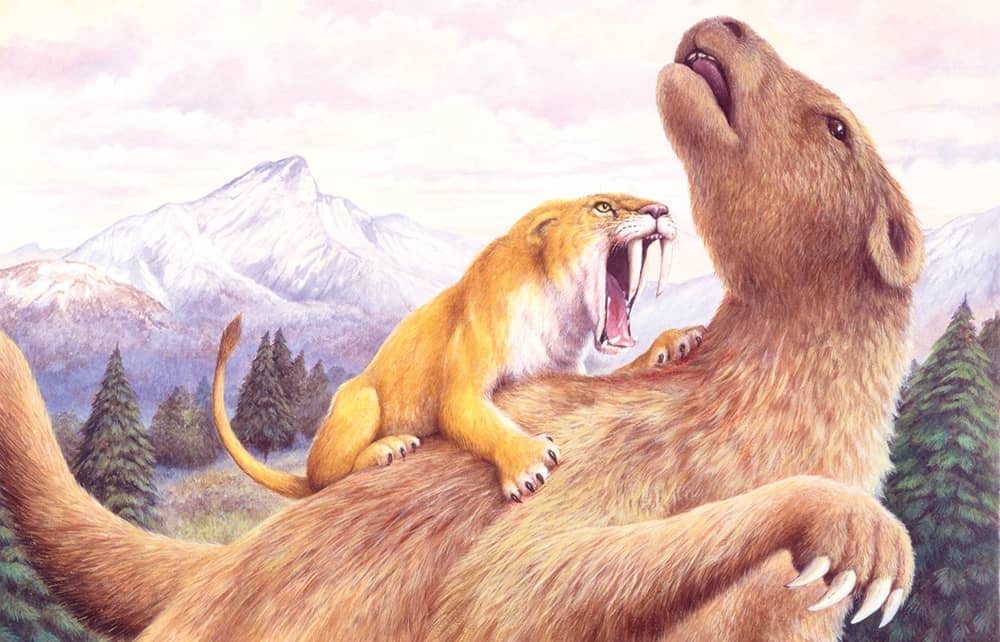Humans are so comfortable with their self-declared dominance over the rest of life, appointing themselves titular head of an entire geological age in the ‘Anthropocene’, that we forget how we are party to a much wider evolutionary alliance: the mammals.
Steve Brusatte announces that mammals reign supreme upon this planet. One thinks especially of their place as climax predators in almost all regions – the lions, tigers, wolves and bears for example – or the sheer weight of numbers of the megafauna in the African savanna, the herds of wildebeest, antelopes and zebras. Mammals are more widely spread over the planetary surface than all higher organisms, with the possible exception of birds. While birds may reign supreme in the air, there are more than 1,000 species of bats, and birds have never penetrated to the ocean floor, as have several kinds of whale which, on a single lungful of air, can hunt at the most crushing depths.
The great success of mammals has been their extraordinary plasticity of form
In this detailed, deeply researched and entertaining book the author summarises why and how mammals have managed to hold sway for so much of the past 65 million years. Central to their success has been the extraordinary plasticity of their form – ranging from mice of a few grams to the 100-tonne limit of all vertebrate life in the blue whale – as well as their exquisite senses of smell and hearing, their capacity for rapid growth and those very large brains, including our own.
Brusatte is well placed to weigh the evolutionary pros and cons of mammals against life’s other great, if now extinct, dynasty on Earth. He is a distinguished paleontologist at the University of Edinburgh, specialising in dinosaurs and even serving as an adviser to the Jurassic Park movie franchise. His previous book, The Rise and Fall of the Dinosaurs, a reader-friendly mix of street informality and academic rigour, was a bestseller.
The same winning formula is deployed in the new work. Brusatte’s default voice includes such colloquialisms as ‘critters’, ‘nifty’, ‘rocked up, ‘creeped out’, ‘humongous’ and ‘whizz’ (as a noun). Yet, as he outlines the 325 million years of mammalian evolutionary ups and downs, he introduces us to a list of extinct subgroups: synapsids, cynodonts, therapsids, therians, multituberculates and dryolestoids.
Much of the history of these mammal groups is contained in their fossil teeth. I must confess to getting a bit lost in the detailed excursions into dental forms – the shearing and grinding attributes of tribo-sphenic molars in the therian jaw, with its trigonid cusps and talonid basins, compared with the less evolved properties of the molars and premolars of the multi-tuberculates, and could have done with prose that better synthesised the two vocabularies – dispensing with the slang and j simplifying the technicalities of dental anatomy. But there is no doubting Brusatte’s grasp of his themes; and he is particularly good at the broad-brush picture of the geological catastrophe which confirmed the ascent of mammals and eliminated dinosaurs from the stage.
This came at the end of the Cretaceous, when the former were little more than pocket-sized burrowers dodging the feet of the giant reptiles overhead. The order of affairs was finally turned upside down when Earth was struck by an asteroid larger than Mount Everest, whose impact was many times the explosive force of the world’s entire nuclear arsenal. It left a prolonged, choking era of freezing weather and famine in which small, furry, nocturnal burrow-dwellers, with the nutrient extracting efficiency of their specialised teeth, managed to survive. Those terrible lizards, on the other hand, crashed to extinction.
Small size may have been key to the fortunes of the early mammalian survivors; but Brusatte delights in telling us of a near-surreal explosion in giant forms that arose in the post-dinosaur world. Here are South American ground sloths the size of a Volkswagen Beetle, and a giant extinct elephant, the largest land mammal ever to appear, which was the size of a double-decker bus. I’ve now developed a fascination with Smilodon – think tiger on steroids – an American felid with canines the length of sickles and one of the largest cats of all time.
The arrival of hominins and finally humans in the last stage of this mammalian epic ushers in a familiar story of biological loss. One of the book’s most astonishing facts is that the biomass of all wild mammals now only accounts for some 7 per cent of Earth’s total. The rest is either humans or their domesticated livestock. Yet Brusatte’s real achievement is to show us that, for all its sheer weight of numbers and impact, Homo sapiens is just ‘a single point, among millions of species over more than 200 million years’.






Comments